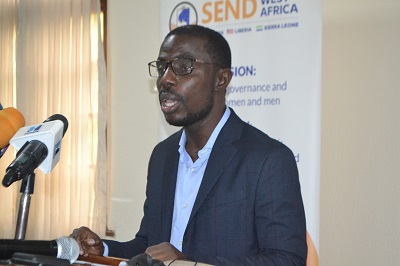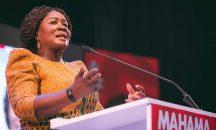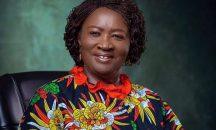Enforce ban on public smoking — SEND Ghana

SEND Ghana, a Policy Research & Advocacy Civil Society Organisation, has asked the government to enforce the ban on public smoking and the use of plastics for food packaging to help prevent the occurrence of diseases.
Mr George Osei Bempeh, Country Director of the organisation, said the devastating effect of the COVID-19 pandemic implied that government must be proactive in tackling potential health challenges and also prioritise primary health service delivery in the country.
Presenting an assessment of government’s 2021 Budget Statement and Economic Policy in Accra on Monday, he noted that the introduction of the COVID-19 levy was commendable, however, the levy should not be “limited to combating only COVID-19.”
He said there must be a “dedicated budget” to finance future epidemics while efforts were made to implement the National Action Plan for Health Security (NAPHS).
Touching on other aspects of the 2021 budget, he said SEND Ghana’s social audit of the COVID-19 Alleviation Programme confirmed that some vulnerable people, including street children and homeless people were “excluded at the height of the crisis when cooked and raw food were distributed by the government and other benevolent organisations.”
This, the organisation attributed to lack of “comprehensive and reliable data” on vulnerable population in the country, hence the need for government to take steps to gather relevant data on such vulnerable groups to help overcome future challenges in the area of social protection.
SEND Ghana further observed that the current amount of GH¢1 per child for a plate of food under the National School Feeding Programme was “unsatisfactory and cannot guarantee an adequate and healthy meal for child development.”
“We are, therefore, proposing to the government to make a conscious effort to increase the amount to at least GHc2.00 per child if it needs to fully attain the programme’s short-term objective to reduce hunger and malnutrition,” Mr Bempeh stated.
On taxation, he said government should consider reintroducing the ‘Luxury Vehicle Tax’ which was scrapped after it faced opposition from sections of the public.
Mr Bempeh said government could be “more innovative with taxation” by targeting the rich instead of “burdening the poor with the same taxes.”
“Government could relook at the implementation challenge with the luxury vehicle tax and consider reintroducing it.
“We are concerned that some of the tax proposals in the 2021 budget are more consumption based, and the fact is, the burden will fall more on the poor and vulnerable,” he noted.
The Country Director maintained that the COVID-19 Health Levy, Sanitation and Pollution Levy and increase in petroleum prices, among other new taxes would have adverse effect on all other sectors and translate into high cost of living especially for the poor.
He said the 2021 budget, just like previous budgets, sought to rely on donor funding and that efforts must be made to wean various sectors of the economy from donor support which possessed a threat to attaining ‘Ghana Beyond Aid’ and the Sustainable Development Goals (SDGs).
By Ernest Nutsugah














